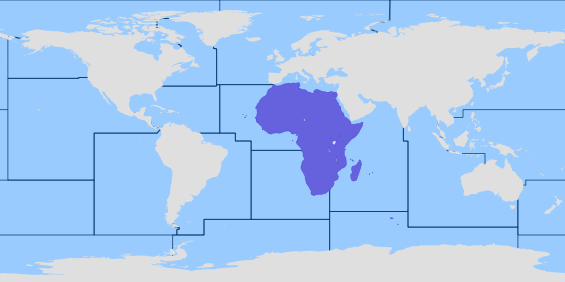Diagnosis: micro-gillrakers absent; small-sized specimens; dorsal fin with 15-17 spines and 11-13 soft rays (mean 17.12); anal fin with 3 spines and 8-9 soft rays; narrow scaly sheet at the base of anal fin; 7-9 lower gill-rakers (Ref. 53405).
Description: head rounded; mouth small, subterminal; inner jaw teeth tricuspid, outer jaw teeth bicuspid and spatulate, posterior pharyngeal teeth bicuspid but posterior and median teeth not broadened; lower pharyngeal bone as long as broad, toothed part longer than or as long as anterior part; scales cycloid (Ref. 53405).
Coloration: in life: ground color dark brown to blackish, sometimes with some narrow, yellowish cross bars on sides and head, 1st just behind eye, 2nd from occiput through hind angle of gill cover to before pectoral-fin base, 3rd just behind pelvic-fin bases, 4th midway between 3rd bar and anus, 5th at level of anus, 6th at level of third anal-fin spine, 7th near hind part of anal fin, and 8th on caudal peduncle; head dark brown, with lighter or yellowish narrow band between eyes and horizontal band on snout, one from eye to upper lip, and broader one on anterior part of cheek below eye; yellowish bands may disappear suddenly, possibly controlled by nervous system; hind angle of gill cover blackish, with small yellow spot at centre; lower lip pale, unlike upper lip and chin which are darker; pectoral fins yellowish to transparent; pelvic fins brownish-black, lighter anteriorly, especially in juveniles; dorsal, anal and caudal fins brownish-black, darker at base; spinous part of dorsal fin with some lighter spots; upper margin of dorsal and caudal fins red in adults (Ref. 53405).
 Image not available
Image not available